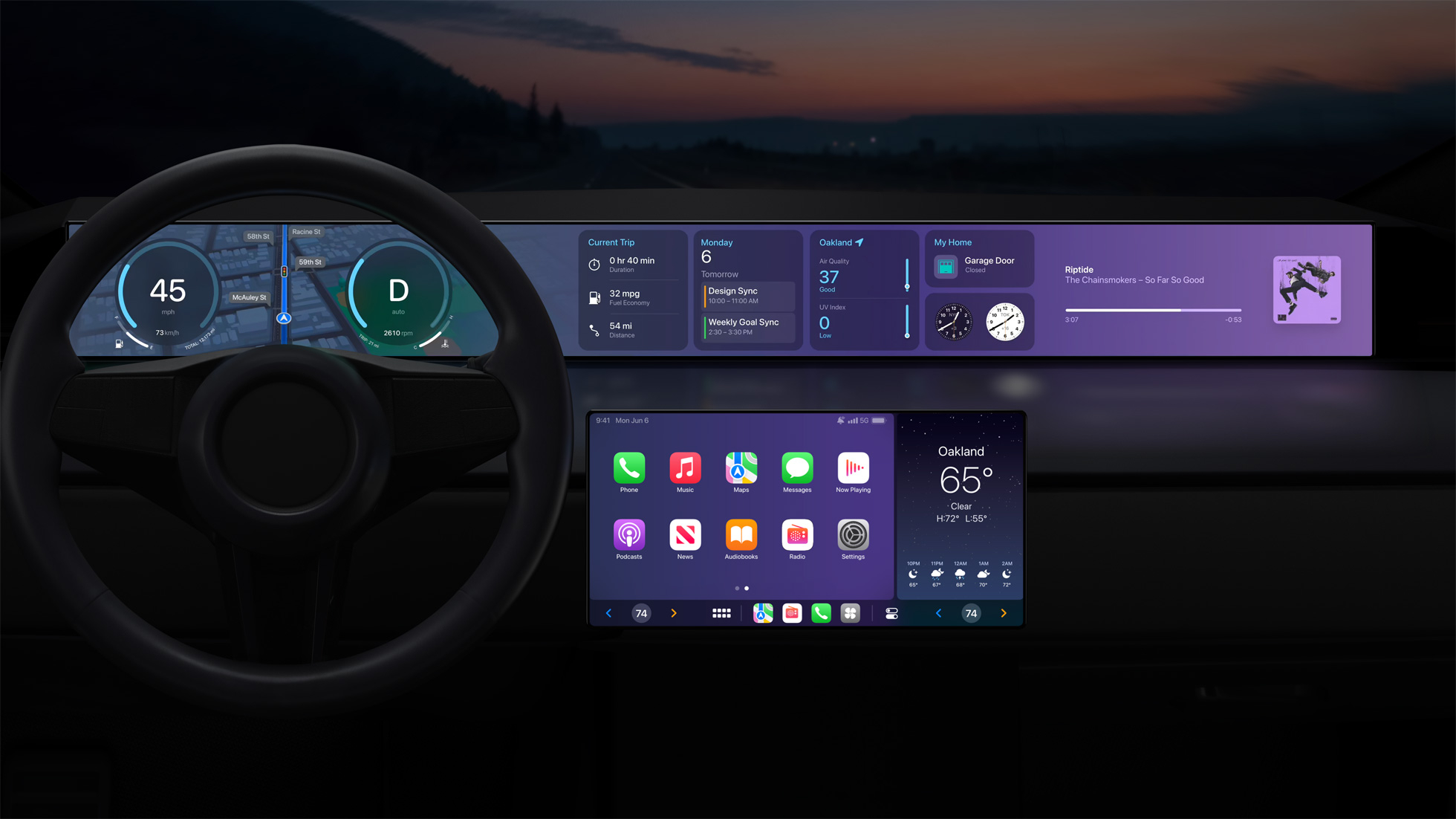DOJ says Apple's CarPlay is so good it's anticompetitive — maybe they should just unplug it
Apple CarPlay might be too good for its own good

Following the news that the United States Department of Justice has sued Apple over what it claims is anticompetitive behavior in relation to the iPhone, some interesting tidbits have started to be spotted in the filing — including a claim that Apple CarPlay is also anticompetitive. The reason, it seems, is that it's just too good.
The lawsuit claims that "by applying the same playbook of restrictions to CarPlay, Apple further locks-in the power of the iPhone by preventing the development of other disintermediating technologies that interoperate with the phone but reside off device," but it would appear that the DOJ has somewhat misunderstood what CarPlay is or how it works.
In the filing, the DOJ's lawyers say that CarPlay takes "over all of the screens, sensors, and gauges in a car, forcing users to experience driving as an iPhone-centric experience if they want to use any of the features provided by CarPlay.” Basically, the DOJ's argument appears to hinge on upgrades coming to CarPlay and specific cars that will allow carmakers to hand over their screens for use with CarPlay entirely — including the cluster of dials that show fuel/range, speed, and more. But the DOJ seems to have missed an important part — this is all entirely optional, and people can choose not to plug their iPhone in at all.
Anticompetitive or just good?
The addition of CarPlay to the lawsuit was reported by The Verge and has so far been seen as a misstep by the DOJ's lawyers. Carmakers will have complete control over what Apple can and cannot do with CarPlay and if they don't want to give over their screens, they don't have to. The same goes for what information and controls are provided, too. And those who have an Android phone just carry on regardless, none the wiser, and certainly no worse off.
CarPlay is indeed popular, and a lot of people say that they wouldn't buy a new car without it. But something being popular does not automatically make it a monopoly, something that seems to have been lost in this recent filing.
This isn't the only oddity, either. The filing mentions Apple's refusal to allow game streaming apps into the App Store — something it already allows — as an example of the control it wields over users and the experiences they have. It all smacks of someone getting a little carried away with themselves or, perhaps just as likely, a document that was written some time ago and hasn't been updated to reflect recent changes. The decision to allow game streaming apps into the App Store came in January of this year.
The most unfortunate aspect of all of this is that the overall DOJ lawsuit might have legs. In some ways, it could have a point. Apple does exhibit behavior and makes decisions and limitations that have a chilling effect on innovation at times. But that argument is watered down somewhat when it's littered with this kind of thing.
Master your iPhone in minutes
iMore offers spot-on advice and guidance from our team of experts, with decades of Apple device experience to lean on. Learn more with iMore!
An example of where it might have a point? Wallets. Apple doesn't allow third parties to use the NFC chip built into the iPhone for payments, leaving Apple Pay as the only option. The EU's Digital Markets Act already decided that has to change in that part of the world and few would argue that a similar change in the United States wouldn't be a positive outcome for users. But when your lawsuit includes laughable claims like the one about CarPlay, the whole thing loses its luster. And that probably isn't something the DOJ can afford to happen at this point.

Oliver Haslam has written about Apple and the wider technology business for more than a decade with bylines on How-To Geek, PC Mag, iDownloadBlog, and many more. He has also been published in print for Macworld, including cover stories. At iMore, Oliver is involved in daily news coverage and, not being short of opinions, has been known to 'explain' those thoughts in more detail, too. Having grown up using PCs and spending far too much money on graphics card and flashy RAM, Oliver switched to the Mac with a G5 iMac and hasn't looked back. Since then he's seen the growth of the smartphone world, backed by iPhone, and new product categories come and go. Current expertise includes iOS, macOS, streaming services, and pretty much anything that has a battery or plugs into a wall. Oliver also covers mobile gaming for iMore, with Apple Arcade a particular focus. He's been gaming since the Atari 2600 days and still struggles to comprehend the fact he can play console quality titles on his pocket computer.
